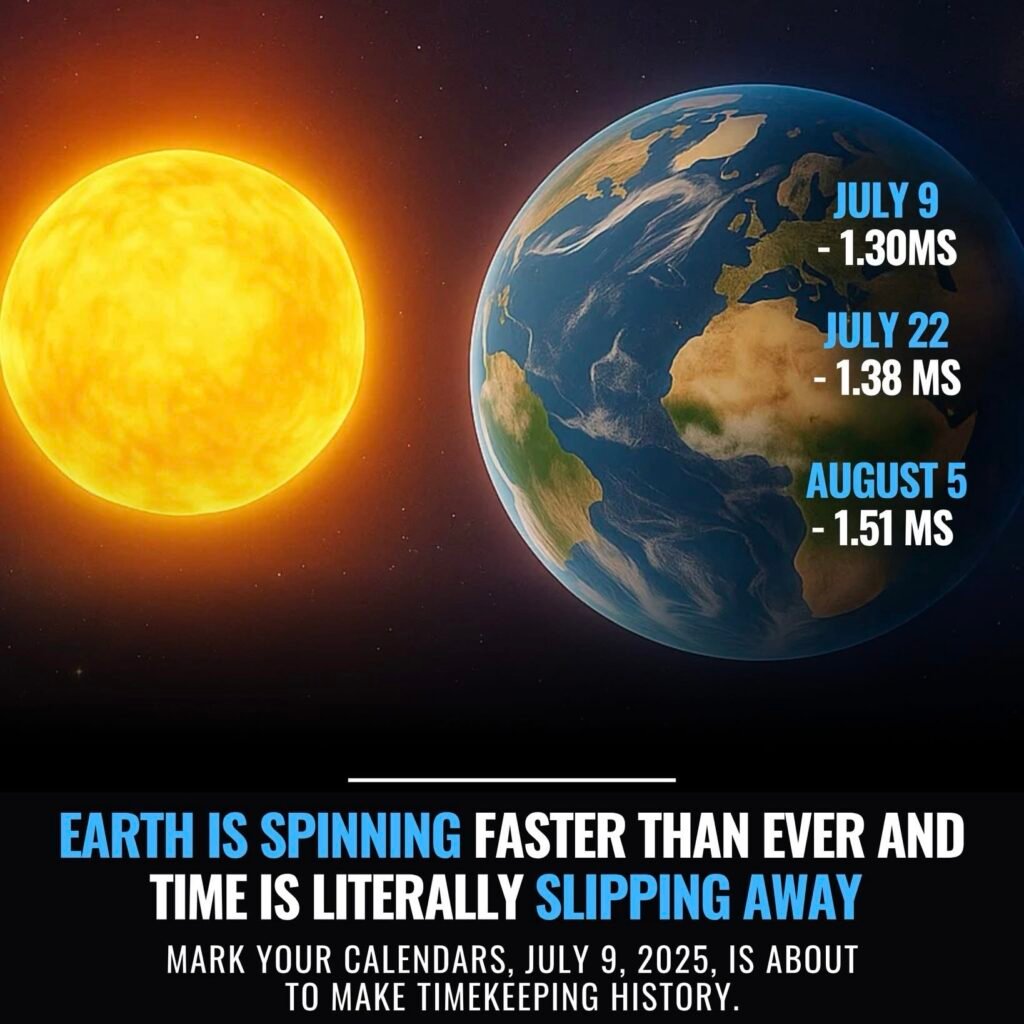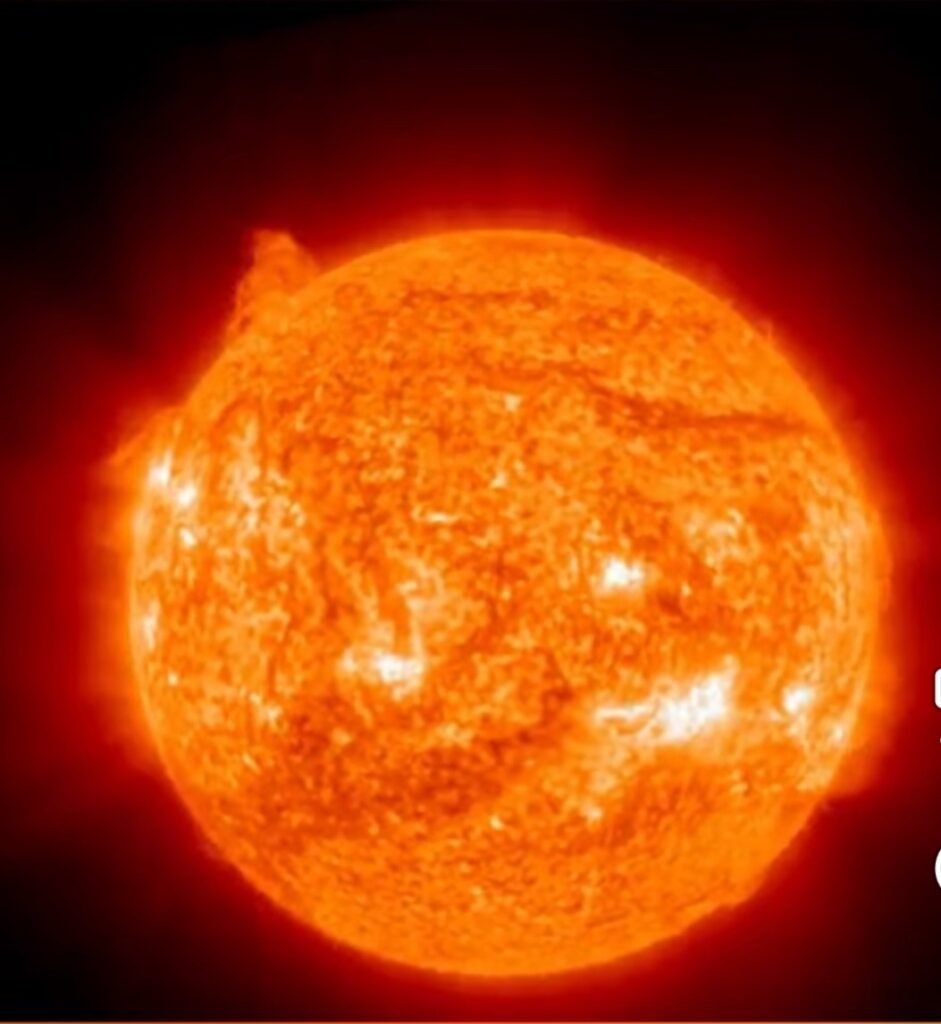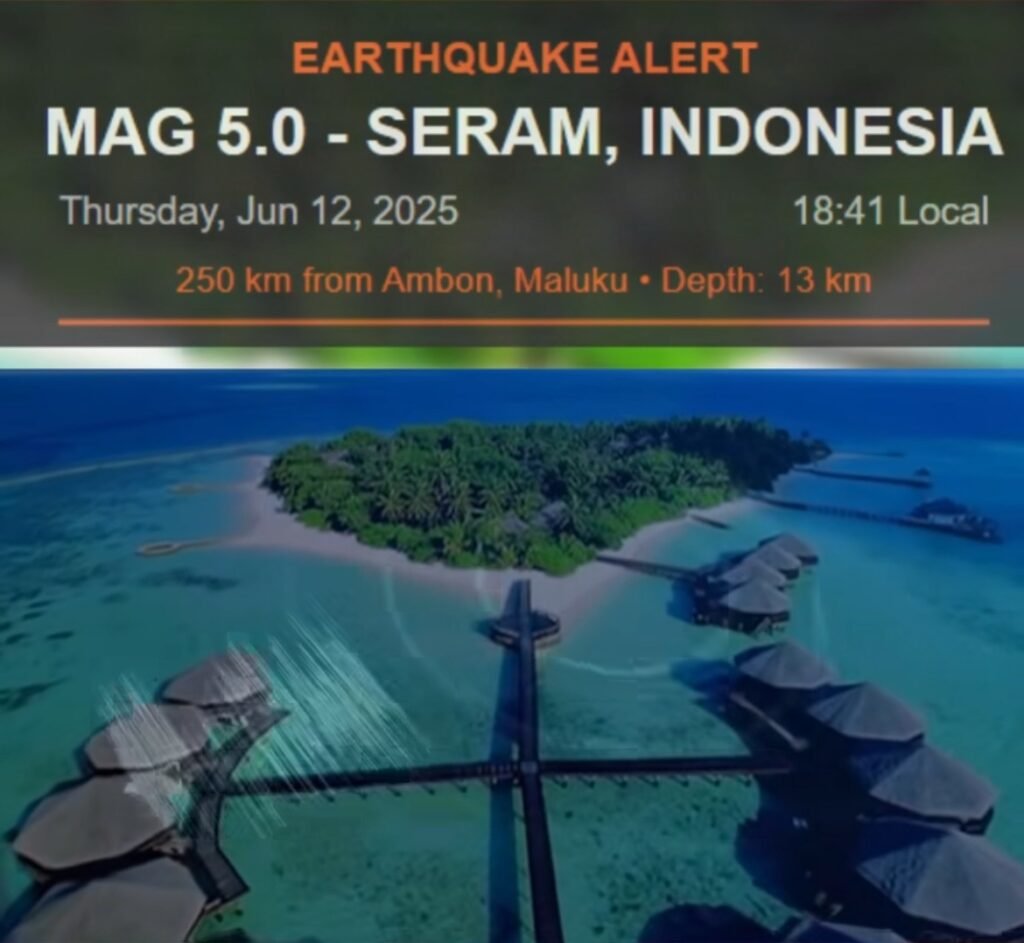Mark your calendars July 9, 2025, is about to make timekeeping history.
According to scientists, Earth will complete its daily rotation 1.30 milliseconds faster than usual, making it one of the shortest days ever recorded. And it won’t be the only one. This year, we’re expecting three record-setting fast-spin days, with July 22 predicted at -1.38 ms, and August 5 coming in even shorter at -1.51 ms.
This isn’t just a random blip. Since 2020, researchers have been tracking a puzzling trend: Earth is gradually spinning faster, particularly around the middle of the year. These changes are incredibly subtle fractions of milliseconds but real. And thanks to ultra-precise atomic clocks, we can measure them with mind-bending accuracy.
The current record-holder? July 5, 2024, when Earth completed its rotation 1.66 milliseconds faster than the standard 24 hours (86,400 seconds).
So, what’s causing this cosmic acceleration? That’s the mystery. While natural forces like tides, wind patterns, and ocean currents are known to influence Earth’s spin, they don’t fully explain the sudden uptick. Some scientists believe the answer may lie deep underground, in the shifting flows of Earth’s molten core—a hidden powerhouse that could be subtly speeding up our planet’s rotation.
While we won’t notice the time difference in daily life, this phenomenon is rattling scientists who depend on ultra-precise timing systems for everything from satellite navigation to internet infrastructure. If the trend continues, we could soon be entering uncharted territory: the need for a “negative leap second” a move that would subtract time instead of adding it. It would be a first in the history of timekeeping.
Bottom line? Time isn’t as fixed as we thought. And Earth, it seems, is still full of surprises.
Credit: Data via International Earth Rotation and Reference Systems Service (IERS)


